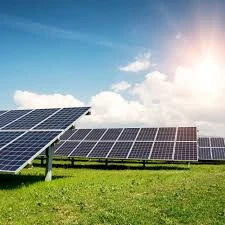Cost Factors for Residential Solar Panel Installation and Their Financial Benefits
Understanding Home Solar Panel Costs
As the world shifts towards sustainable energy sources, many homeowners are considering solar panels as a viable alternative to traditional power sources. The appeal of harnessing sunlight for energy is not just about environmental benefits; it also promises long-term financial savings. However, the cost associated with installing solar panels can be a significant consideration. In this article, we will delve into the factors influencing the cost of home solar panel systems and what homeowners can expect.
Initial Costs of Solar Panel Installation
The cost of purchasing and installing solar panels can vary significantly based on several factors. On average, in the United States, a solar panel system can range from $15,000 to $30,000 before any rebates or tax credits are applied. This price typically includes the solar panels, inverters, installation labor, and, in some cases, additional equipment such as batteries for energy storage.
One major factor influencing the cost is the system size required for a home. The size is usually measured in kilowatts (kW), and the average residential solar panel system ranges between 5 kW and 10 kW. Homeowners will need to assess their energy consumption to determine how much power they require, affecting the number of panels needed and, subsequently, the overall cost.
Types of Solar Panels
There are different types of solar panels available on the market, which can also affect installation costs
. The three primary types are1. Monocrystalline Panels Known for their high efficiency and sleek appearance, these panels are usually more expensive but can be a wise investment for homeowners with limited roof space. 2. Polycrystalline Panels Generally less expensive than monocrystalline panels, they are slightly less efficient and take up more space. They can be a good option for homeowners looking for a more budget-friendly solution. 3. Thin-Film Panels These are lightweight and flexible, making them easier to install in certain situations. However, they tend to have lower efficiency rates, which can result in needing more panels to generate the same energy.
home solar panel cost

Additional Costs and Considerations
Beyond the purchase price of panels, additional costs can play a role in the total investment. For instance, homeowners may face expenses for permits, inspections, and utility interconnections. Additionally, if a roof needs repairs or reinforcement to support solar panels, this could add to the overall costs.
It's also essential to consider long-term savings and incentives. Many regions offer tax credits, rebates, and net metering options that can significantly reduce the upfront costs. For example, in the United States, the federal solar tax credit allows homeowners to deduct a portion of the installation costs from their federal taxes, making solar energy more financially accessible.
Return on Investment
Calculating the return on investment (ROI) for solar panels is crucial. The ROI will depend on the initial installation cost, the efficiency of the panels, local energy prices, and available incentives. On average, homeowners can expect to recoup their investment within 5 to 10 years, after which they can enjoy free electricity for several decades, as solar panels typically come with a warranty of 25 years or more.
Conclusion
The costs associated with home solar panel systems can vary widely based on various factors, including the size of the system, type of panels, installation expenses, and available incentives. While the upfront investment may seem daunting, the long-term savings and environmental benefits make solar energy an appealing option for many homeowners. As technology advances and costs continue to decrease, investing in solar panels is becoming an increasingly viable option, promoting a sustainable future while reducing utility bills. Homeowners interested in solar energy should carefully assess their needs, research available options, and consult with professionals to make an informed decision that best fits their situation.
-
Navigating Off Grid Solar Inverter: From Use Cases to Trusted PartnersNewsAug.05,2025
-
Solar Edge String Inverter: A Wholesaler’s Guide to Inverter Technology SelectionNewsAug.05,2025
-
Microinverters: Revolutionizing Solar Energy UseNewsAug.05,2025
-
Future of Monocrystalline Solar Panel Efficiency: Latest Technological AdvancesNewsAug.05,2025
-
Solar Panels for House: A Complete Guide to Residential Solar EnergyNewsAug.05,2025
-
Panel Bifacial Performance in Snow and Low-Light ConditionsNewsAug.05,2025







